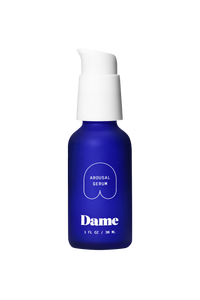‘Tis the season of cheer, joy, merry, celebration, love, family, festivities....which can be a whole lot of pressure. And that pressure doesn’t exactly get you “in the mood.” You might be seeing family you haven’t seen last Hanukkah, or friends of friends you might want to impress. Holiday movies and Christmas campaigns often project capitalist, heteronormative notions of what success and happiness should look like. Social cues that make people feel less-than are everywhere, and it can seem like your worth is based on your relationship or the gifts you are (or aren’t) able to give your loved ones.
I sat down with Liz Afton, LMSW, of the Gender and Sexuality Therapy Center to discuss how to maintain strong and loving intimacy with yourself and others when the holiday season starts to feel less than merry. Afton has been a therapist for 7 years, and she has been providing mental health and emotional support services to queer, trans, kinky, survivor, and sex work communities for over 12 years. We talked about intimacy cheat sheets, what to do when your parents still think you are “experimenting,” or if you just can’t take one more, “But how are you still single?”
You may be living in an entirely different life from how you were raised, both geographically and philosophically, but returning to your family ecosystem can cause you to revert back to old ways. “Going back to family brings us back to our child states,” Afton explained. Old triggers shake loose old responses and can make us feel powerless. If your new partner hasn’t seen your lose your temper over a pumpkin pie before—well, that can certainly be startling.
Afton said that while this a great time for meaningful catch-ups, requests for life updates can feel more invasive than usual during the holiday season. “People feel like they have the right to read into your life and comment on your life at this time,” she said. An easy conversation at a Christmas Eve party can get judgey real quick: “A comment about your body, a comment about your job, a comment about your style, about who you are or aren’t dating, why don’t you have kids at this point?” Not to mention any and all questions relating to your relationship status.
An intimacy cheat sheet helps to reiterate that you are on the same side and you’re navigating things together.
This time of year can create dissonance between societal expectations of what “should” be happening in your life and what is actually happening in your life (no matter how much you are killing it). And whatever bad vibes you are already anticipating can put a serious strain on you or your partner. Luckily, Afton has some mechanisms to help ease those tensions.
Make an Intimacy Cheat Sheet With Your Partner
If you’re attending holiday gatherings with your partner, Afton suggests you and your partner come prepared with a holiday cheat sheet of sorts. This cheat sheet will be an opportunity to create a strong point of connection before entering any holiday madness. Whether it’s just a conversation or a tangible list, it helps to reiterate that “you are on the same side and you’re navigating things together,” Afton said, which “will help your resilience.”
First, you can brief each other on an event’s guests and the crowd’s dynamics—for instance, if your mom likes to set the table a certain way or if you have beef with a person who’s going to attend a New Years gathering. Fill your partner in on these details before the festivities begin.
The second part of the cheat sheet is more about you. Let your partner know how you tend to act in these environments. For example: “When I’m home and around the paternal side of my family, I get more quiet.” Or, “I tend to cry around this particular aunt.” Let them know how you like to be treated and what you need in those tougher moments, whether that’s space, words of encouragement, or a moment in private with your partner.
Have a safe word on hand already? Perhaps repurpose it this holiday season as a signal that it’s time to dip out early. If words don’t work so well in times of distress, maybe a wink, a hand squeeze, or another physical signal is your cue that an exit within 15 minutes is necessary. Giving yourself permission to leave places that don't feel safe can be really helpful. Have an excuse in your back pocket in case you need it. If you keep getting dirty looks from your in-laws, or if someone homophobic is in the space, being able to remove yourself with as much ease as possible can be invaluable to preserving your wellbeing.
Cheat Sheets Work For Single People, Too
Single friends can utilize the cheat sheet, too! No matter how strong-independent-human you are, the holidays are an easy time to feel overwhelmed by your singleness or your otherness in general. Take a moment to journal a similar sequence of habits and tools: These are the things that tend to come up for me, this is how I tend to react, these are the coping skills I can use to help myself in those moments. “When we are disregulated, we’re not able to connect with our rational mind,” Afton explained. So write down those active calming devices you can use in times of distress.
Be present amid the chaos, whether that’s during the few sexual experiences you can make time for or just generally feeling centered in your body.
Afton also recommends having your crew readily available to you via our magical devices. Put your group chat on notice, have your BFF on alert that they might be needed for venting, or queue up a Brené Brown podcast in case you need a cheerleader at a moment’s notice. You can also figure out who your allies are internally. Maybe the majority of family members won’t “get it,” but you have that one awesome, chill uncle you know you can confide in. Let them know that you might need some backup if your not-so-chill uncle starts prying into the corners of your life you’d rather keep private.
Book a Staycation Amid the Madness
If you do have a busy holiday season, Afton recommends making a point to take a staycation with your partner for a night or two. She says it’s a great idea to book a hotel room where you are, or in a town an hour away. (If funds/time are tight, a romantic evening at home sans technology can feel just as novel.) Bring some lube and your full, undivided attention to remind yourselves that the connection exists underneath the holiday overwhelm. If you’re single, this exercise in momentary isolated connection still applies! Get a massage, take some nudes, have an erotic evening with your vibrator and yourself.
Afton also suggests working on being present amid the chaos, whether that’s during the few sexual experiences you can make time for or just generally feeling centered in your body. Your best bet is to try and “ground yourself into the physical in any way,” she said. “Any way that you can inhabit your body pleasurably and with freedom. Remind yourself that it is yours.” Any tangible, active forms of comfort or meditation are great for this. Some suggestions Afton offered are the 4-7-8 breathing technique, wearing an outfit that makes you feel sexy, taking time to enjoy your favorite meal, or snuggling up with a cozy blanket. She also expressed how finding time in nature—even if it's just a walk down a city street to get some air—can really help you to feel grounded in your body.
Afton suggests these questions to spark self-reflection:
- What are the people, places, objects, experiences that make me feel more powerful and free?
- What are my typical responses when I’m feeling out of control or powerful? How can I come back to myself in those moments?
- What are the encouraging words I need to hear when I'm feeling lost or disconnected?
- What are my sure-fire ways to care for myself when I’m feeling overwhelmed?




























